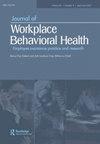Health and well-being of first responders: The role of psychological capital, self-compassion, social support, relationship satisfaction, and physical activity
IF 0.8
Q3 PUBLIC, ENVIRONMENTAL & OCCUPATIONAL HEALTH
引用次数: 5
Abstract
Abstract First responders are frequently exposed to dangerous, high-stress, and traumatic situations, leaving them susceptible to both physical and mental health consequences. The current study explored factors that relate to both health and well-being in 391 first responders (255 males and 136 females), aged 18–64 years. The study’s aim was to explore the role of psychological capital (PsyCap), self-compassion, social support, relationship satisfaction, and physical activity in the health and well-being of first responders. Data was collected using an online survey which was distributed to first responders, including firefighters, police officers, and emergency medical personnel, in the state of Massachusetts, USA. Descriptive and correlational statistics were performed, followed by hierarchical multiple regression analysis and path analysis, revealing that PsyCap, self-compassion, social support, relationship satisfaction, as well as physical activity are key mediating factors impacting the health and well-being of first responders. Findings pose as a foundation and stepping-stone to improve first responders’ health and well-being. In particular, a multifaceted approach to intervention drawing on the combined variables identified in the path model is indicated.急救人员的健康和福祉:心理资本、自我同情、社会支持、关系满意度和身体活动的作用
摘要急救人员经常暴露在危险、高压力和创伤的环境中,使他们容易受到身心健康后果的影响。目前的研究探讨了391名18-64岁的急救人员(255名男性和136名女性)的健康和幸福感相关因素 年。该研究的目的是探索心理资本(PsyCap)、自我同情、社会支持、关系满意度和体育活动在急救人员健康和幸福中的作用。数据是通过一项在线调查收集的,该调查分发给了美国马萨诸塞州的急救人员,包括消防员、警察和急救医务人员。进行了描述性和相关性统计,然后进行了分层多元回归分析和路径分析,揭示了心理资本、自我同情、社会支持,关系满意度以及身体活动是影响急救人员健康和幸福感的关键中介因素。研究结果为改善急救人员的健康和福祉奠定了基础和垫脚石。特别是,指出了利用路径模型中确定的组合变量进行干预的多方面方法。
本文章由计算机程序翻译,如有差异,请以英文原文为准。
求助全文
约1分钟内获得全文
求助全文
来源期刊

Journal of Workplace Behavioral Health
PUBLIC, ENVIRONMENTAL & OCCUPATIONAL HEALTH-
CiteScore
2.40
自引率
6.70%
发文量
14
期刊介绍:
The Journal of Workplace Behavioral Health, retitled from Employee Assistance Quarterly to better reflect its expanded focus, presents innovative research, applied theory, and practical information to keep workplace human service administrators, counselors, and consultants up to date on the latest developments in the field. This refereed journal is an essential guide to best practice and research issues faced by EAP professionals who deal with work-related and personal issues including workplace and family wellness, employee benefits, and organizational development.
 求助内容:
求助内容: 应助结果提醒方式:
应助结果提醒方式:


